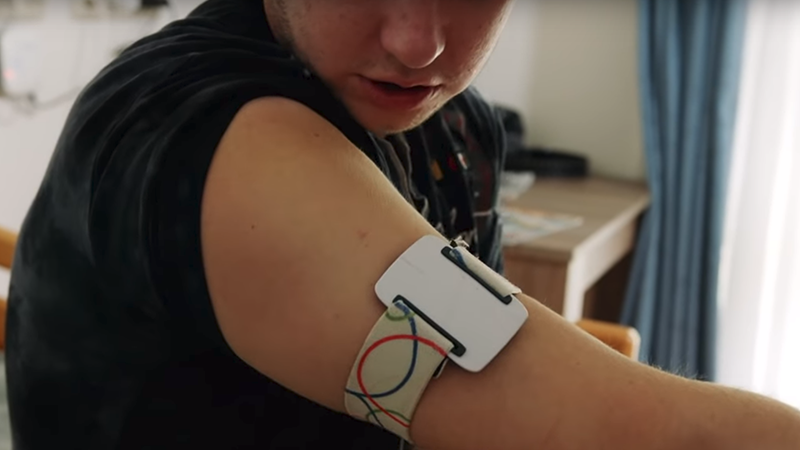Researchers at Kempenhaeghe and Eindhoven University of Technology in collaboration with multiple partners have developed nighttime seizure alert device for people with epilepsy. Nightwatch, the wearable device is designed to wear at night. It alerts the caregiver of imminent seizure by triggering an alarm.
Related Scientists Develop AI System That Can Predict Epileptic Seizure
A large number of people with treatment resistant epilepsy experience seizures at night. Because the seizures can have serious consequences, both professional and voluntary carers want to be able to observe them as early as possible.
“Nightwatch was developed because we are unable to observe many night time seizures… and the current systems cannot do that effectively yet. That is why we’ve developed this small device, to make it simple and reliable,” said Neurologist Johan Arends.
“From extensive research that we’ve done it now appears that Nightwatch recognizes 85% of severe seizures. Scientific research has proven that Nightwatch is an important step forward. We measure the heartbeat, and we do that with a (sensor) light. This requires good contact with the skin and we also measure movement. The heartbeat is unusually high during these seizures.”
The device is an upper arm strap-on that measures the heart rate and movement of the sleeping person, directly from the body. There is no discomfort. You almost don’t notice that you’re wearing the armband.

“I don’t really have that much trouble from the Nightwatch at night, said Gerard, a patient of Kempenhaeghe,” said Gerard, a patient at Kempenhaeghe. “Now it’s yellow. It becomes yellow when it detects the heartbeat, and red when I’m having a seizure. I feel safer with the Nightwatch on.”
When the device detects a seizure, it sounds an alarm to the caregiver. The system has been designed mainly for home use.
Related Epilepsy Foundation Awards $3 Million Grant to Scientists for its Seizure Gauge Initiative
The researchers compared their technology to a bed sensor that is normally used for epilepsy. The study showed that the existing sensor detects jerky movements while the patient is in bed, and it failed to warn of severe seizures once every four nights, while the Nighthawk missed only once every 25 nights on average, reports MedGadget.
“We already know that the caregivers feel safer and have a lot more freedom. We hope that in the longer term we can also demonstrate that there are fewer complications,” said Arends.
“The goal of the Nightwatch is to bring safety to as many people as possible, and to actually detect 100% of all serious seizures.”









